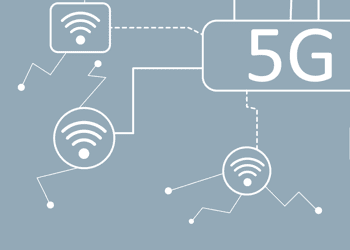Environment and sustainability continue to drive headlines. Whether you believe climate change is manufactured or not, we can all still practice ways to contribute to being a part of the solution.
The Internet and the devices we use for communicating are not necessarily environmentally friendly. We want to believe that working remotely is more friendly because we drive less. Most agree that sending and emailing files, digital signatures, and storing video and images on servers is better for the world. Yes, it helps reduce the need for paper and uses less gas or electricity to power our cars. But there are considerations we don’t think about or see.
We know the Internet is here to stay, but there are ways to be greener while using these modern technologies.
How Much Does Your Internet Use Impact the Environment?
It’s easy to assume that our Internet use makes little impact on the world. After all, we are only one out of 5.07 billion people that use the Internet daily. You may be surprised to discover that your Internet use matters more than you realize.
Every year, 39.9 billion tons of CO2 are emitted around the world. Digital technologies, including the Internet, account for 4% of this figure.
Social Media
Most people have multiple social media accounts (Facebook, LinkedIn, Instagram, X, Threads, TikTok, etc.). Research demonstrates that one person checking ten social media platforms for five minutes daily adds up to 20kg of CO2 emissions annually. That is the equivalent of driving a passenger car 52.5 miles.
Apps that primarily use video make up the most considerable percentage of carbon emissions regarding the social media component of the internet’s carbon footprint. A single user generates 2.63 grams of CO2 per minute. Only five minutes per day equals 4,800 grams of CO2 each year.
Smartphones
What about your smartphone? Virtually everyone relies on some brand of smartphone to communicate, shop, order food delivery, perform research, and a myriad of other tasks. Let’s look at just one famous example.
An environmental report published in 2021 confirmed that one of the most popular phones on the market is responsible for 64kg of CO2 emissions. Add to that the CO2 emissions from 4G or 5G networks’ electricity usage, which is about 512 kWh. In the United States, 1 kWh equals 427 grams of CO2, so 512 kWh is approximately 220 kg of CO2 emissions. It is a staggering amount of energy consumption for just one device.
This only details carbon emissions from regular use. Manufacturing, production, and packaging account for 81% of an iPhone’s total carbon emissions. These factors are also huge for desktop computers, laptops, and tablets.
Tips to Be More Environmentally Friendly
One person can make a difference for many causes, and the environment certainly merits our attention. Here are some tips for being more environmentally conscious in your Internet use.
Replace Instead of Upgrade
Upgrading for the next device release drives a huge production market for new phones, tablets, laptops, and personal computers. Be a replacement person instead of an upgrade person and use your devices longer. Only replace them when they collapse or show signs of wearing out. Learn some handy strategies to make your devices last longer so you won’t need frequent upgrades. When it is time to get a new device, recycle your old ones to get the most out of their valuable components and keep them out of landfills. Some places will even give you cash for recycling your old devices.
Practice Smart Device Usage
Follow the best practices for using your devices to conserve energy, preserve their lifespan, and make them last longer.
- Use Wi-Fi wherever possible instead of a mobile network.
- Don’t run your device batteries precipitously low.
- Turn off your home Internet box when not in use.
- Use lower video resolution when possible.
- Limit video streaming, which uses more data and energy, causing more device wear.
Limit Online Storage
Cloud storage is all the rage for businesses and personal use. Everyone keeps data in the cloud to prevent losing it. But online storage consumes more energy to power the server continuously and exchange data. Preserve as much data as possible using local storage options like hard drives and discs that use less energy. Then, remove that excess data from the cloud to free up resources.
Reconsider Online Shopping Habits
One way to use the Internet smarter is by online shopping. Save fuel you would have used going to a store and order in bulk to reduce the number of deliveries you need. Bulk deliveries also minimize packaging. Plus, choose the right products to eliminate the need for returns.
Consider only ordering what you plan to keep instead of regular consumable deliveries. This can also reduce the number of deliveries, packaging, energy, and trash you generate.
Alternatives to Social Media
We all want to stay connected in today’s society. The myth is you have to use social media to do it. There are many alternatives that can help be more environmentally friendly. Here are some ideas:
- Visiting friends in-person: How 90’s of us to say, but if you live in close proximity it can be healthy for you and the environment to just walk or bike to a friend’s house. Perhaps do this once a week as a group? It takes you away from the phone for a few hours and nothing matches an in-person connection.
- Limit You Phone Usage and Social Media Time: We have heard this before but your phone tracks usage. Imagine if everyone cut social media time down by an hour each day across the world? It would result in a dramatic reduction in emissions.
- Utilize phone calls, text messages, and emails: Instead of communicating through apps that track everything you do, engage with you, and present you with things to keep your attention, be more deliberate with your friends and family. Send them a text, email, or give them a call. It will help reduce the time you spend on social media.
Use Environmentally-friendly Search Engines
When searching for data or a particular website, choose environmentally friendly search engines that operate more efficiently and give something back. (We recommend that you look into these search engines to verify security levels you are comfortable with).
- Ecosia: Is powered by 100% renewable energy and plants a tree for every 45 searches; plus, it doesn’t harvest your private data.
- Ekoru: Uses profits to remove plastic and reforest oceans.
- OceanHero: Uses profits to help prevent plastics from entering oceans.
Explore the Benefits of Fixed Wireless Internet with MHO
Fixed Wireless Internet can also be a more environmentally friendly way to keep your business online. Contact MHO today and explore the possibilities! Call us at 1-877-WANT-MHO or request information online by completing the contact form.
{{cta(‘1b7ff105-cbb6-486e-888d-bb72f7746c39′,’justifycenter’)}}




![[Infographic]: How the Growing Demand For Bandwidth Is Affecting the Enterprise](https://blog.mho.com/wp-content/uploads/2017/12/Screenshot-2025-06-24-141345.png)

